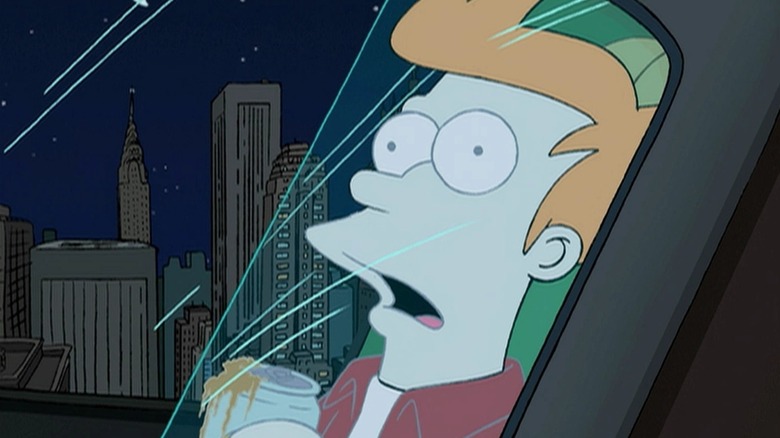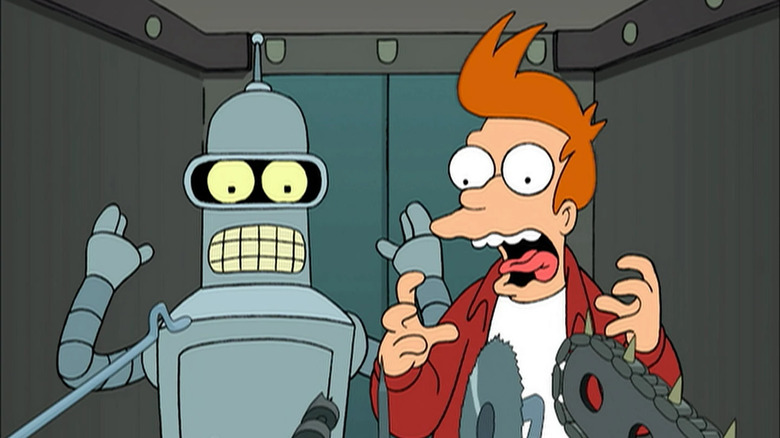An Early Draft Of Futurama's Pilot Placed Fry At An Organ Auction
Much has been made of the 1989 pilot for "The Simpsons," which told the bittersweet story of how the dog Santa's Little Helper joined the family, but it's clear that "Futurama" delivered an even stronger first impression ten years later. "Space Pilot 3000," which begins with pizza delivery guy Fry falling into a cryogenic chamber and waking up a thousand years later, introduces us to a new futuristic world that has a lot of cool technology, sure, but is definitely not a utopia. There are suicide booths on every corner, angry drunken talking robots, and no shortage of delivery jobs that still don't pay as much as they should. Fry still finds a better life in the fourth millennium, but it's a major adjustment.
In one of the early drafts for the pilot, Fry's adjustment to this new world (and this new cast of characters) was made even harder, because the circumstances that led him to join the Planet Express crew were far more chaotic. According to co-creator David X. Cohen in the commentary track for the first episode, the original plan for Fry when he first woke up in the future was for him to be "immediately dragged to an auction where he was bought by the professor [Farnsworth] for spare organs."
It's one hell of a dark joke to start the series on, although we know from the aired suicide booth sequence that darkness wasn't a huge problem for them. Ultimately, the organ auction was cut because there was simply too much in the pilot script to fit into a single thirty-minute episode. "Were very over-ambitious at the beginning," Cohen explained, "and we had probably about two hours of material for the pilot and realized we could not possibly use it."
A more clumsy version of Star Trek
In the aired pilot, Fry's first introduction to the future has him meeting with the one-eyed Leela and being assigned by a computer to another lousy delivery job. It's much more in line with this show's vision of the future: one that looks impressive and crazy on the surface, but where everything is basically structured the same. Humanity might now have the ability to travel the stars and cure all sorts of once-terminal illnesses, but working-class guys like Fry are still stuck doing the same dead-end gigs.
The other recurring joke the show had planned, which you can see much more of throughout the pilot, is the idea that futuristic technology will be just as malfunction-prone as technology in the present. "We were going to have all this cool technology like they have in 'Star Trek,' 'Star Wars,' but it was going to malfunction like technology always does," Cohen explained. "So, you know, we're going to throw those sliding doors in but they're going to hit you in the head."
Since then, "Futurama" has constantly played around with viewer's expectations of the future, revealing everything about the 31st century to be surprisingly mundane and annoying. Even the cool stuff, like getting to visit alien planets and travel across galaxies, quickly loses any sense of awe behind it. For Fry and the rest of the crew, amazing things like visiting the moon are soon treated like just another job to do. It's not exactly a depressing view of the future — humanity's still alive, after all — but it's not a particularly optimistic one either.

